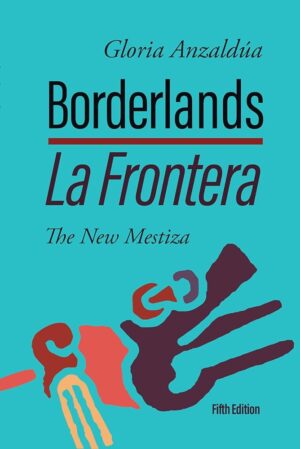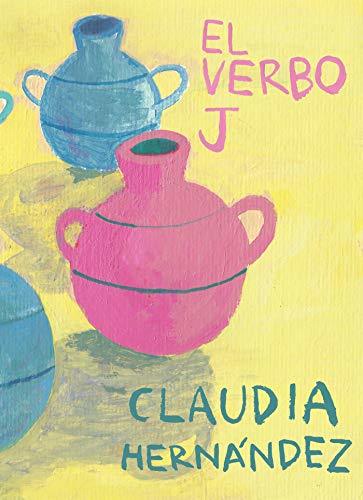BU Humanists at Work: Catalina Rodríguez, Assistant Professor of Spanish
Assistant Professor of Spanish Catalina Rodríguez’s interests are varied, reaching back to nineteenth-century use of gendered pseudonyms and forward to ecofeminist dystopias. Across this breadth, Rodríguez pulls common threads together to form a picture of a Latin America that is both shaped by the past and looking toward the future.

Rodríguez first found herself drawn to literary studies as an undergraduate in Bogotá, Colombia, where she read works far removed from her own time. She was particularly drawn to 19th-century literature because she found “the intersection between political discourses and literature [to be] more evident. It was fascinating for me to try to understand how literature was part of founding a nation,” Rodriguez explains. Rodríguez continued her studies into this period at Northwestern University, where she earned her PhD in Spanish & Portuguese and wrote her dissertation on the use of gendered pseudonyms in the nineteenth century. Now, Rodríguez is using that research in her first book project.
“We have women using gendered pseudonyms to be able to distance themselves from the things that people expect that they were going to write about,” says Rodríguez, pointing to Latin American traditions of women as poets. However, men also adopted gendered pseudonyms to play on these expectations. “Presidents and politicians, very important men in Latin America, were using female names to publish novels and to publish in the press,” notes Rodríguez. This practice continues today, and one famous example shocked the world a few years ago.
“In 2021, the most important literary prize for Hispanic literature, the Premio Planeta, was awarded to three men under a female psuedonym, Carmen Mola. In the moment that it was awarded, people discovered that Carmen Mola was not a woman,” Rodríguez recounts. “So we can see how the female pseudonym also carries this marketing related to female literary production that we see nowadays as women start to take over bestseller lists.”
Rodríguez is also interested in how gendered pseudonyms acted as ways to think about queer desire and gender identity, a topic she explores within contemporary literature in her course on the intersection of queerness and migration. “There’s a lot of emphasis on kids migrating currently, and there’s a lot of stories that are coming out from these kids that deal with how their queerness was also a huge impact on their decision to migrate,” says Rodríguez. Many contemporary novelists have taken up these stories.

Rodríguez begins the class with Gloria Anzaldúa’s Borderlands/La frontera, encouraging students to rethink the border as a structure. Just as gender boundaries are malleable, national boundaries portrayed as fixed are nuanced concepts. “I hope these stories will help [students] be more empathetic with the realities of these people, and especially question the idea of someone being illegal, that I think can be very powerful, but also very dangerous,” says Rodríguez.
Rodríguez also explores dangerous ideas in her second course on ecofeminism, horror and dystopia in Latin American Literature. Through a reading list of texts from the twentieth and twenty-first centuries, Rodríguez invites students to explore how the exploitation of nature intersects with gender-based violence and the lasting impacts of colonialism to create sites of horror. “Latin America is a great example to think critically,” says Rodríguez. “The same plantation systems that were imposed in colonial times have been carried throughout the centuries and are now being understood from a different lens.” The plantation is still horrific, and Rodríguez assigns books that show how this space “shows the intersections of systems of powers.”
“Ecofeminism draws on feminist theory to actually understand how to deal with climate change,” says Rodríguez. “Horror and dystopia have been very interesting ways in which literary scholars and writers in general have responded to ecocriticism,” she continues. Drawing on the horrific ecocritical implication of spaces like the plantation or histories of political and gender-based violence, contemporary Latin American authors marry the grotesque with the critical, forcing the reader to confront the issues facing Latin America and the world.
Rodríguez arrived at BU in Fall 2023 after a year as an Assistant Professor (CLTA) at the University of Toronto and is excited to meet new students and scholars at BU through her work. “I really like the department of Romance Studies. We have different languages, so that allows me to understand literature more broadly,” says Rodríguez, citing her conversations about nineteenth-century literature with Professor of French Rachel Mesch as an example. “The 19th century is very global,” Rodríguez notes. “When we start to compare the discourses that we’re producing in Latin America and in France, especially around feminism, and around gender identity, we see a lot of commonalities.” She was also happy to note that this broad array of interests extends to undergraduates, reporting that “the students are very diverse” and always bring different perspectives into the classroom.

For those interested in widening their own literary perspectives, Rodríguez has plenty of book recommendations from contemporary Latin American authors. Her favorite book on the intersection of trans identity and migration is El verbo jota, which is currently being translated into English with support from the National Endowment for the Arts. For those unfamiliar with Spanish, Rodríguez recommends Megan McDowell’s translations of Samanta Schweblin and Mariana Enríquez’s works. From the distant past to the dystopian future, Rodríguez is ready to tackle it all, guiding students through theory and history toward a better understanding of Latin American literature.